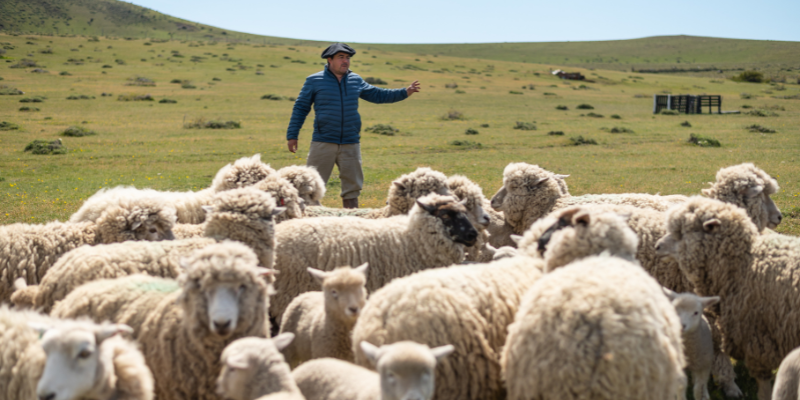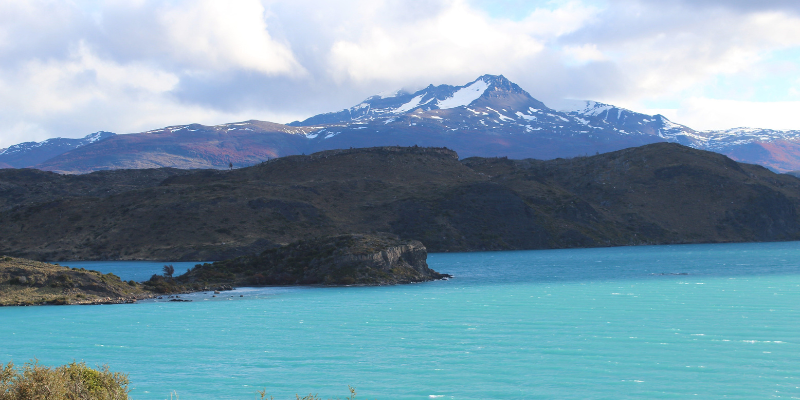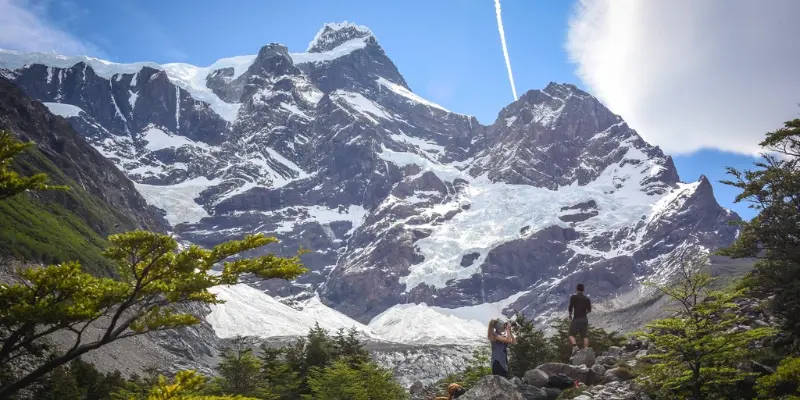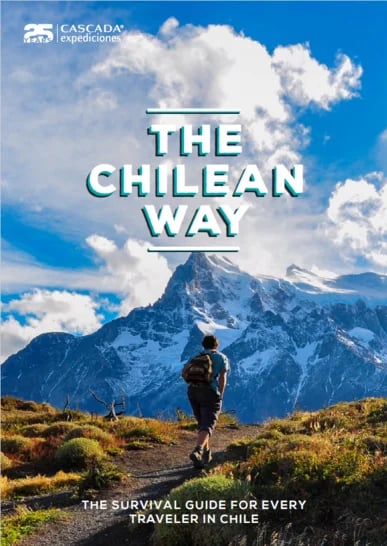Today is World Environment Day, a special event organized by the United Nations that draws awareness to conservation and environmental protection. This year the UN has a strong focus to #beatairpollution. Here at Cascada, our recent focus is to protect Patagonia and preserve this region’s incredible wonders:
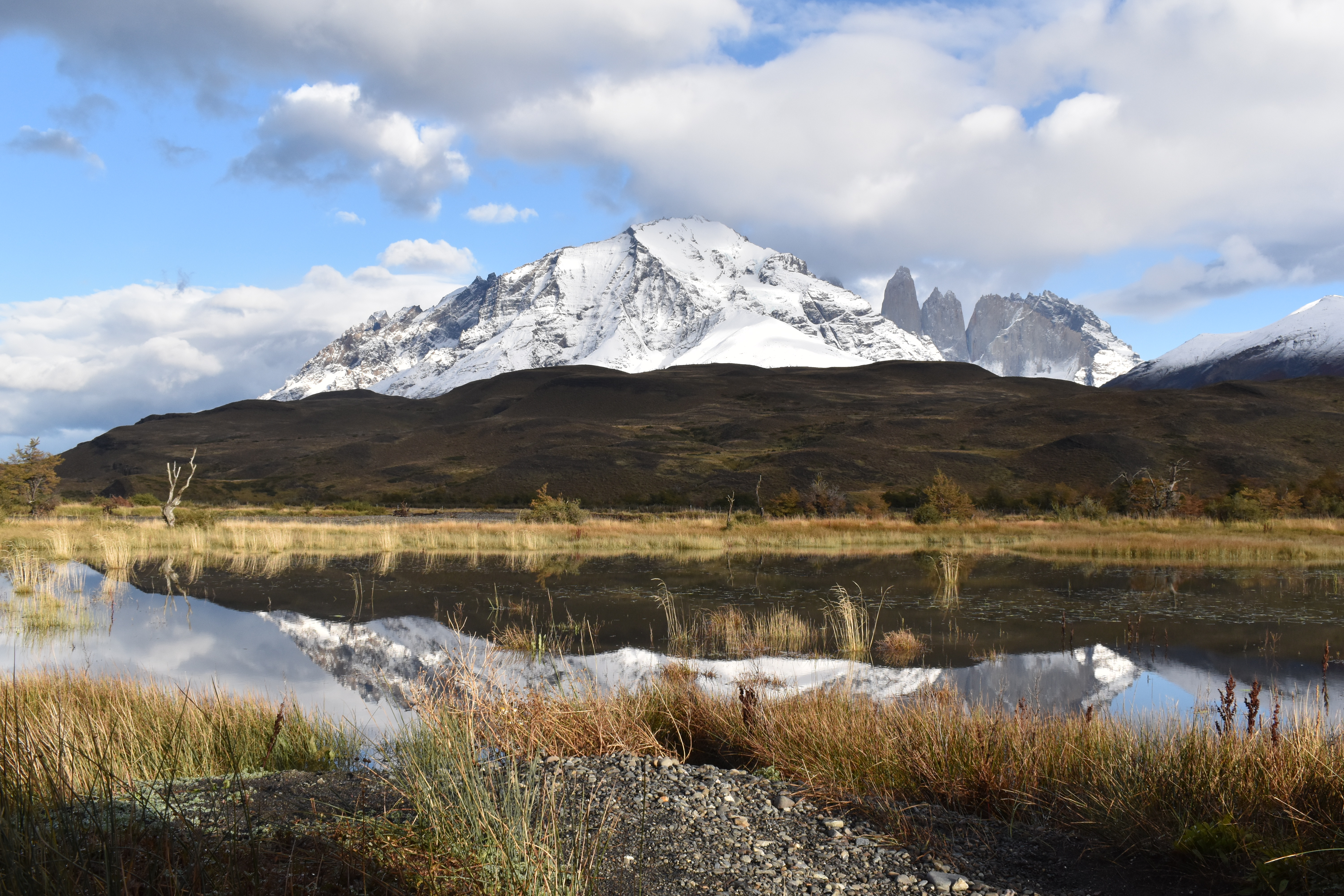
Practice Responsible Tourism
Responsible tourism is key to protecting Patagonia! It is the only way we can keep the region clean and healthy. Little things can really make a big difference and we believe it is important that visitors learn to travel in a responsible way. It’s as simple as...
- Taking Back Garbage: This includes organic trash! Do not leave anything --your apple cores, granola bar wrappers or tissues in beautiful Patagonia. It looks bad and disrupts the ecosystem.
- Staying on Marked Pathways: On treks, it’s important to stay on the marked pathways. It prevents erosion and the trail from widening.
- Picking Eco-friendly Accommodation: Stay in places that support green travel, such as EcoCamp Patagonia.
- Thinking Sustainable: Use refillable water bottles, look for biodegradable products and get rid “one-use” items, such as plastic bags.
Participate in Local Conservation Efforts
There are all sorts of events and initiatives that take place in Patagonia, helping to preserve its beautiful nature. The area is big, but the population is pretty small! Locals could always use an extra hand with their projects. Right now a few local initiatives include...
- Fiesta de la Limpieza: In Puerto Natales, this Chilean initiative helps keep Torres del Paine National Park clean. A couple times a year, a group of volunteers hold a cleaning event to pick up trash left by irresponsible travelers. Learn more!
- Tu Mejor Huella: A campaign started late last year to help rebuild the base torres trail in Torres del Paine. Sadly, this trail is suffering from erosion and at risk of irreversible damage. Read about it here.
- Kid’s Reforestation Program: EcoCamp organizes an event for children to come to Torres del Paine and help plant new trees.
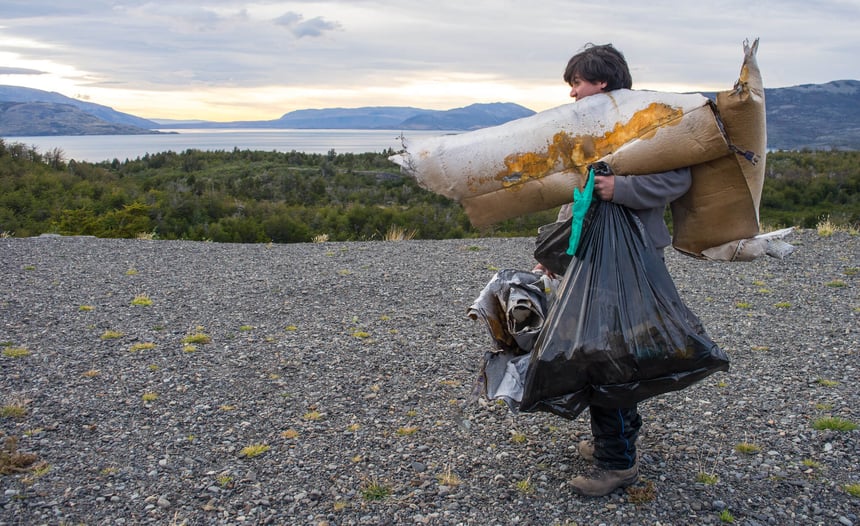
Understand the Region and its Struggles
It’s hard to help Patagonia until you know and understand the problems the region faces. Take time to learn about the environmental problems, so you can better help to solve them. Here’s a brief overview of a few key issues in the region:
- Climate Change: This is an issue that is not only impacting Patagonia, but the entire globe. With excess greenhouse gasses, our future planet is at serious risk. We have already seen negative change in Patagonia, such as retreating glaciers. In fact, a giant iceberg broke off Grey Glacier just this year.
- Forest Fires: At least one fifth of Torres del Paine has been destroyed from forest fires! Fire spreads very quickly in the region due to the strong wind. Therefore, it is extremely important that travelers follow the parks’ rules and do not have campfires in areas not permitted. We have sadly seen how a small fire can quickly transform into a very big fire.
- Waste: Recycle what you can and take everything back! With an increase in tourism, ecosystems are at risk due to excess waste.
Respect the Flora & Fauna
Patagonia is known for its unique wildlife and vegetation. People love to spot see the beautiful, colorful Lenga trees, along with condors flying overhead and pumas hiding in the grasses. It’s all part of what makes Patagonia so incredible! To keep these animals and plants healthy and safe it is important that travelers do the following...
- Keep a Safe Distance: Patagonia is full of incredible wildlife, such as pumas, condors, guanacos, foxes and more. We love to spot them, but we have to also respect them. Make sure to stay at a safe distance from the animals. This ensures safety for the traveler and the animal. Also: Do not feed or try to touch any of the animals!
-
-
- Leave What You Find: There are many beautiful things to see! But remember to look, not touch. Even if you see an interesting rock or colorful flower, it belongs to the region. Taking natural souvenirs disrupts the environment.
- Leave What You Find: There are many beautiful things to see! But remember to look, not touch. Even if you see an interesting rock or colorful flower, it belongs to the region. Taking natural souvenirs disrupts the environment.
-
With this in mind, the last and most important thing we can do is spread the word! Education is power. The more people who learn about conservation, the more change we are bound to see. Happy Environment Day everybody -- let’s work together to make the world a greener place!

